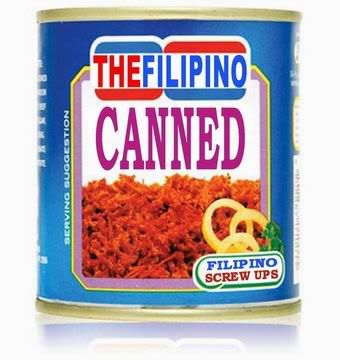Results 1 to 4 of 4
-
February 22nd, 2010 02:14 PM #1
http://newsinfo.inquirer.net/breakin...Es-CNG-project
[SIZE="4"]Bus firms threaten to pull out of DOE’s CNG project [/SIZE]
By Amy R. Remo
Philippine Daily Inquirer
First Posted 21:42:00 02/21/2010
MANILA, Philippines -- Operators of compressed natural gas-run buses have threatened to pull out of the Department of Energy's Natural Gas Vehicle Program for Public Transport (NGVPPT) over the government’s alleged failure to address the issues plaguing the program.
According to Roberto Torres, president of the RRCG Transport System Co. Inc., they have been unable to operate their CNG buses due to the inability of the "daughter" station of the Pilipinas Shell at Mamplasan to operate and provide fuel to them.
Torres said bus operators, which have already invested heavily for the project, have been losing some P200 million. He said his company has been suffering losses of about P1 million a month.
“Needless to say, the very promising pilot project of the NGVPPT has bogged down. We see our investment not only in the 45 CNG buses, but also in its technical support in terms of manpower training and supplier, as well as infrastructure-being wasted away and slowly sinking in the quagmire of Shell and DOE's making," he said.
The NGVPPT is a seven-year pilot program that would peg the price of CNG at P14.52 a liter, less than half the price of diesel, for participating bus operators. It targets to push forward the natural gas industry.
Currently, the mother station is in Tabangao, Batangas while the "daughter" station is in Biñan, Laguna. As such, the CNG-fed buses included under the program are those plying the Manila/Cubao to Laguna/Batangas route. Both stations are operated by the Shell group of companies in the Philippines.
According to Torres, they first learned that Shell's CNG daughter station in Mamplasan had not been operating due to the inability to transport the natural gas from the mother station in Tabangao, after a bridge collapsed in 2009.
But they also learned, said Torres that the Mamplasan station had not been operating even before the bridge collapsed.
As such the bus operators have asked the President to intervene in solving their concerns.
Different bus companies have submitted a letter to Malacañang, dated Jan. 18, 2010 that was signed by Torres, HM Transport Corp. president Crispin Rea; KL CNG Transport Corp. president Charlie Lim; and BBL Trans System Inc.'s Avelino Souza.
The bus operators claimed that "the DOE has failed to compel Pilipinas Shell to shape up and deliver its commitment to supply the CNG requirements of the NGVPPT. Instead it has acted more like the PR arm of Shell than the lead government agency in charge of ensuring the success of the NGVPPT."
In the same letter, they said that the DOE “has even failed to come up with alternative suppliers of CNG, seemingly ignoring and burying in bureaucratic red tape all our proposals."
The groups said they agreed to participate in the pilot program with a view that this would be a "most realistic and completely doable pilot project initiated by the government for the use of alternative but very clean fuel-CNG, since it can be sourced from indigenous and huge commercial deposits of natural gas, with infrastructure already in place to make full use of it."
"We committed to import 200 CNG buses from DOE-approved suppliers abroad, with the initial 45 units arriving in 2005 and 2006. DOE assured us that Pilipinas Shell, which the government had commissioned to supply the initial CNG mother/daughter stations would have such stations on-line by 2006. Unfortunately, the initial 45 buses that we imported had to deteriorate for two up to three years before we could even begin to use them, because Shell's single mother/daughter station in Malampaya and Mamplasan became operational only by mid-2008," they said.
They stressed that "since then the operation of this mother/daughter station has been plagued with technical problems and failures almost every month leading to erratic hit and miss operations of the CNG buses."
Torres, meanwhile, warned that they would have to soon convert their CNG-run buses to diesel if the government would remain mum on the real score of the NGVPPT.
[SIZE="2"]Another prime example why the Filipino is CANNED.[/SIZE]

-
February 22nd, 2010 06:38 PM #2
haha
like i said in another thread...
if there's a sure bet, it's betting screw ups like that will always happen
the govt asked the private sector to import CNG buses
but there's still no fuel supply infrastructure
just promises from the govt
very good
-
February 23rd, 2010 01:59 AM #3
Not surprised. I learned about all of this early last year when I talked to the owner of one of those bus lines (we were talking about something else, but I asked him about their CNG program)...
The government never really pushed hard enough to create a supply infrastructure.
This is less a "Filipino Canned" thing than a "Government Canned" thing. Private enterprise was easily able to create a demand for LPG, a supply infrastructure and a market... simply because they knew what they were doing. The government?
At least this gives me hope that the stupid E10 program won't last forever... :hysterical:
Ang pagbalik ng comeback...
-
February 23rd, 2010 08:43 AM #4
parang ang daming naka park na mga cng bus sa shell slex malapit sa mamplasan. tapos parang laging sarago ang area ng cng filling pumps.
sayang naman ang project na ito.
batas ang paggamit ng E10. imo, walang pag asa na hindi matuloy. unless magkaroon ng issue sa supply.





 Reply With Quote
Reply With Quote




3M Color Stable series are all above 50% TSER. RFID readable through the tint, stays good for...
What's the best car tint brand and color?